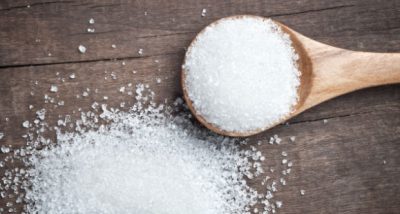In our society, it’s very common to have a high sugar diet. From sweets brought in to work or to schools to bakeries in the grocery store, it’s impossible not to find sugar somewhere. Additionally, it is also in foods that you wouldn’t necessarily expect to have any sugar in such as beans or corn. If you look on the nutritional labels of canned vegetables or fruit, you’ll find an astronomical amount of sugar that’s staggering. Sugar not only affects what goes on in our guts, but it also affects what goes on in our mouths. Similarly to when you exercise and don’t seem to lose weight because you’re still eating sugar, you’ll find that even when you practice excellent dental care you’ll still get cavities and other harmful oral nuisances. As a dentist, we want to cover how one facet of a high sugar diet can be detrimental to your dental care.
When it comes to a high sugar diet, naturally occurring bacteria in the mouth devours sugar, creating acids that attack tooth enamel. This can lead to decay, as well as a host of other problems, including gingivitis.
Living in a culture that moves as quickly as ours, it’s easy to bypass a nutritious diet in favor of one comprised of fast food and snacks high in sugar. The detrimental effects of this lifestyle are clear. More than 25 percent of children between the ages of two and five have experienced tooth decay, and almost 80 percent of young people have had a cavity by age 17.
“We live in a high-stress society and fast food offers a quick fix,” says Academy of General Dentistry spokesperson Maria A. Smith, DMD, MAGD.
She adds that an overabundance of sugar is not only detrimental to oral health, but also the rest of the body’s well-being. A high sugar diet can wreck havoc from everything from our cardiovascular system all the way to our mental health. By consuming so much sugar, you can increase your LDL, elevated triglycerides, and high blood pressure. Additionally, you can expect to have drastic mood swings, anxiety, depression, and even depression.
For example, the average 12-ounce can of soda contains 10 teaspoons of sugar, and many manufacturers incorporate sugar into their foods to help ensure a return purchase. Today, the average person consumes approximately 150 pounds of sugar a year, or about 40 teaspoons a day.
It’s not only our culture that defines the amount of sugar we consume, but also a lack of education on how much sugar we consume every day – especially when it comes to children and the elderly. Dr. Smith says parents may believe they are doing right by feeding their children processed fruit juice or raisins. However, products such as these are mostly sugar. Processed foods also can be harmful because of the low-nutrition and high-sugar content. Substituting these products for fresh fruits and vegetables is a better option.
“People don’t realize how many high-content sugar products are out there,” Dr. Smith says. “Education is the key to creating a nutritious diet.” Visiting the dentist twice a year, says Dr. Smith, is a good way to maintain oral health and learn how to curb an excessive sugar intake. Additionally, eating an abundance of fresh fruits and vegetables and carefully reading nutrition content labels can curb sugar intake.
To schedule an exam to check your teeth, contact us at 519-305-9100.
SOURCE: http://www.knowyourteeth.com/infobites/abc/article/?abc=N&iid=315&aid=1275

